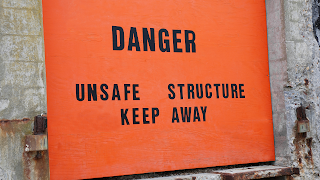Reflections on "The Sisters Are Alright" and My Experience as a Black Woman in the Workplace
I recently joined a book club, and for our first read of the new year, we were assigned The Sisters Are Alright by Tamara Harris Winfrey. Admittedly, this wasn't the book I voted for—I knew it would be emotionally heavy, touching on topics I hadn't fully confronted. But after work one evening, I picked it up, determined to prepare for our first meeting with notes, questions, and reflections.
As I delved deeper into the book, emotions began to surface. The way Winfrey explores the treatment of Black women compared to white women struck a nerve, reminding me of my own workplace experiences. One vivid memory came rushing back from my time at a downtown law firm where I worked as the closing person.
Employees could clock out five minutes early every evening, and I did so regularly. But one day, the Black assistant manager approached me with an attitude over an email request that came in just as I left the previous evening. Her frustration wasn't about the email but the stack of incomplete scans left by a white coworker. Rather than address the coworker's failure, she directed her anger toward me.
I wasn't having it. Black woman or not, I made it clear that she would not speak to me in such a disrespectful manner. I told her plainly that if she had an issue, she needed to direct it to the right person—because it wasn't my mess to fix. This moment wasn't just about standing up for myself but also about recognizing a pattern: Black women are expected to take on more, to absorb frustration, and to clean up messes left by others—mainly white coworkers who are often upheld despite their lack of accountability.
Reading this book brought that memory back, along with countless others. Time and again, I've witnessed how white women are allowed to skate by with the bare minimum effort while Black women are expected to pick up the slack. It's a dynamic I've encountered in multiple jobs. Where I currently work, I'm often left chasing down missing information because white coworkers fail to provide what's needed. Yet I'm still told to "get it done." Their errors are dismissed or quietly overlooked while I fix the fallout.
It's infuriating. White women, in my experience, can't stand us, yet they depend on us. Without Black women, the inefficiencies and gaps would be glaringly obvious—because nothing would get done. This recurring theme in my professional life makes me wonder: Do I have a good work ethic, or has it been ingrained in me that I must work twice as hard to prove myself?
I've heard this sentiment all my life, but when will we collectively recognize how problematic it is? Why do we shoulder this burden while others live stress-free, carefree lives? Black women are often left with the health consequences—high blood pressure, anxiety, and burnout—while others thrive at our expense.
The Sisters Are Alright isn't just a book; it's a mirror, reflecting truths that are difficult but necessary to face. It reminds us that these struggles aren't isolated—they're systemic. As I prepare for our book club discussion, I'm left with questions for the group and myself: How can I reclaim my time, energy, and worth in spaces that so often take them for granted?
.png)

.png)
.png)
Comments
Post a Comment